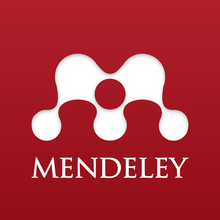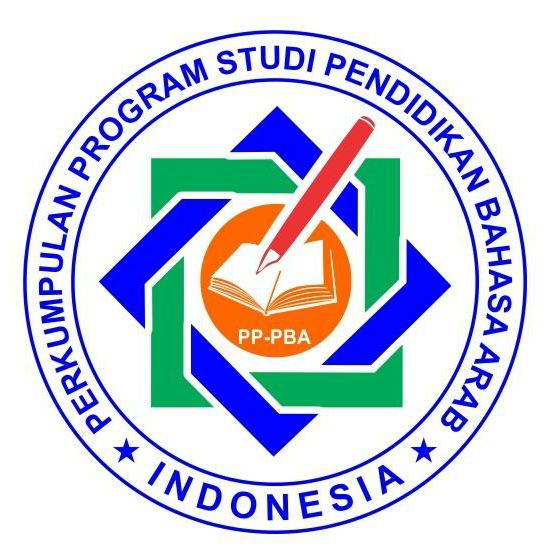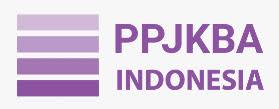Taṭbīq al-Manhaj al-Qā’im litarqiyyah Mahārah al-Kalām liṭalabah al-Ma’had
Implementation of the Islamic Teachers College Curriculum to Improve Students' Arabic Speaking Skills at Islamic Boarding Schools
DOI:
https://doi.org/10.37680/aphorisme.v4i2.3861Keywords:
Curriculum, Darul Fikri Islamic Boarding School, Arabic Speaking SkillsAbstract
The purpose of this research is (1) to describe the application of the Islamic Teachers College curriculum in improving the speaking skills of first-year experimental students at the Darul Fikri Islamic Boarding School. (2) describe the supporting and inhibiting factors in implementing the Islamic Teachers' College curriculum to improve first-year experimental students' speaking skills at the Darul Fikri Islamic Boarding School, Ponorogo. (3) describe the effect of implementing the Islamic Teachers College curriculum in improving the speaking skills of first-year experimental students at the Darul Fikri Islamic Boarding School, Ponorogo. The research method used is qualitative with a case study approach. Data collection techniques use observation, interviews, and documentation. Data analysis with stages of data reduction, data presentation, and drawing conclusions or verification. The results of the research show (1) The application of the Islamic Teachers College curriculum in improving students' speaking skills at the Darul Fikri Islamic Boarding School Ponorogo is very useful, especially for learning processes that use Arabic in directing and teaching Arabic language lessons according to Arabic language rules to improve class students' speaking skills. one Experimental. (2) Supporting and inhibiting factors: Supporting factors: The teacher's ability to teach is very important, and the learning methods used at the Darul Fikri Islamic Boarding School, Ponorogo, can support the process of implementing the Islamic Teachers College curriculum in improving speaking skills. Skills of first-year experimental students. According to the background, the inhibiting factors are. The ability of students who do not graduate from the Islamic Institute to receive Arabic language lessons and the ability of students who have difficulty accepting the subjects taught. (3) The effect of implementing the Islamic Teachers College curriculum is that students can use Arabic in communicating within the Islamic Institute, both actively and passively, per the correct Arabic language rules.
References
Aisa, A., Jannah, S. N., & Rahmawati, R. D. (2020). Taṭwīru Waḥdah Al-iliktrūni Litanmiyah Al-mahārah Al-qirā’ah; Al-taḥlīl Al-Waqi’ī bi Al-Madrasah Al-Śānawiyyah Baḥr Al-‘Ulūm Tambak Beras Jombang. Aphorisme: Journal of Arabic Language, Literature, and Education, 1(1), 65–84. https://doi.org/10.37680/aphorisme.v1i1.322
Alhazmi, D. L. (2022). Professional Development Effectiveness of E-Learning on Quality of Students’ Performance in Higher Education. International Journal of Engineering and Advanced Technology, 12(1), 54–57. https://doi.org/10.35940/ijeat.a3835.1012122
Ali, M., Supriadi, R., Saleh, N., & Khalid, S. M. (2021). Isyārāt fī Taṭbīq al-Manhaj al-Dirāsī al-Ta’allum al-Ĥurrī fī al-Jāmi’ah al-Ĥuriyyah MBKM liqism Ta’līm al-Lugah al-‘Arabiyyah. International Conference on Arabic Language and Literature, 411–428.
Azra, A. (2012). Pendidikan Islam; Tradisi dan Modernisasi di Tengah Tantangan Milenium III. Kencana Prenada Media Group.
Bani, S. (2015). Kontribusi Pesantren dalam Sistem Pendidikan Nasional. AULADUNA: Jurnal Pendidikan Dasar Islam, 2(2), 264–273.
English, F. W., & Larson, R. L. (1996). Curriculum Management for Educational and Social Service Organizations. ERIC.
Hanafi, W. (2017). Diglosia Bahasa Arab Pesantren dan Upaya Pemertahanan Bahasa Daerah. Jurnal Qolamuna, 10(2).
Hidayat, T., Rizal, A. S., & Fahrudin, F. (2018). Peran Pondok Pesantren Sebagai Lembaga Pendidikan Islam di Indonesia. Ta’dib: Jurnal Pendidikan Islam, 7(2), 1–10. https://doi.org/10.29313/tjpi.v7i2.4117
Idris, A., Trisnamansyah, S., & Wasliman, I. (2022). Implementation of The Internal Quality Assurance System in Improving School Quality. Munaddhomah: Jurnal Manajemen Pendidikan Islam, 3(1), 27–34. https://doi.org/10.31538/munaddhomah.v3i1.96
Ismawati, E. (2012). Metode penelitian pendidikan bahasa dan sastra. Pnerbit Ombak. https://books.google.co.id/books?id=he95AQAACAAJ
Kesuma, G. C. (2017). Refleksi Model Pendidikan Pesantren dan Tantangannya Masa Kini. Tadris Jurnal Keguruan Dan Ilmu Tarbiyah, 2, 63–74.
Midi HS, M. H. (2020). Pembelajaran Bahasa Arab dan Dinamika Wacana Bahasa: Studi Komparasi Teori Al-Sulūkiyyah dan Al-ʽAqliyyah antara Teks dan Konteks. Aphorisme: Journal of Arabic Language, Literature, and Education, 1(1), 16–31. https://doi.org/10.37680/aphorisme.v1i1.316
Moeloeng, L. (2011). Metodologi Penelitian Kualitatif. Rosda Karya.
Mubarak, A. F., Putra, W. H., & Salma, K. N. (2022). al-‘Alāqah al-Irtibāṭīyah bayn al-Bī’ah al-Lughawīyah wa-Mahārāt al-Lughah al-‘Arabīyah ladá Ṭalabat al-Ma‘had. Al-Ma‘Rifah, 19(2), 183–192. https://doi.org/10.21009/almakrifah.19.02.05
Muhzin Nawawi, M. N. (2017). Pengembangan Kurikulum Pendidikan Bahasa Arab. An Nabighoh Jurnal Pendidikan Dan Pembelajaran Bahasa Arab, 19(1), 85. https://doi.org/10.32332/an-nabighoh.v19i1.759
Mukhtar Umar, A. (2009). Şinā’ah al-Mu’jam al-Ĥadīś. ’Alam al-Kutub. file:///D:/Materi Kuliah S3 PBA UIN Suka/Dirāsāt %60an Ma%60ājim Ta%60līm al-Lugah al-’Arabiyyah/صناعة المعجم الحديث.pdf
Mukminin, A. (2021). I’dād al-Mawād al-Ta’līmiyyah li Mahārah al-Kalām ‘alā Asās al-Żakā’āt al-Muta’addidah bi al-Madrasah. Aphorisme: Journal of Arabic Language, Literature, and Education, 2(1), 13–22. https://doi.org/10.37680/aphorisme.v2i1.645
Musyarapah, M. (2017). The Role of Progressive Philosophy in the Curriculum Based on John Dewey’s Theory. Al-Hayat: Journal of Islamic Education, 1(1), 32–39.
Siddiq, A. (2023). Reforms On Islamic Education In Indonesia (A Case Of Pesantren, Madrasah, And Islamic University). Shibghoh: Prosiding Ilmu Kependidikan ….
Sugiyono. (2013). Metode Penelitian Kuantitatif, Kualitatif dan R&D (13th ed.). Alfabeta.
Taubah, M. (2019). Maharah dan Kafa’ah Dalam Pembelajaran Bahasa Arab. Studi Arab, 10(1), 31–38. https://doi.org/10.35891/sa.v10i1.1765
Downloads
Published
Issue
Section
License
Authors who publish with this journal agree to the following terms:
Authors retain copyright and grant the journal right of first publication with the work simultaneously licensed under a Creative Commons Attribution-NonCommercial 4.0 International License that allows others to share the work with an acknowledgement of the work's authorship and initial publication in this journal.
Authors are able to enter into separate, additional contractual arrangements for the non-exclusive distribution of the journal's published version of the work (e.g., post it to an institutional repository or publish it in a book), with an acknowledgement of its initial publication in this journal.
Authors are permitted and encouraged to post their work online (e.g., in institutional repositories or on their website) prior to and during the submission process, as it can lead to productive exchanges, as well as earlier and greater citation of published work.




.jpg)


